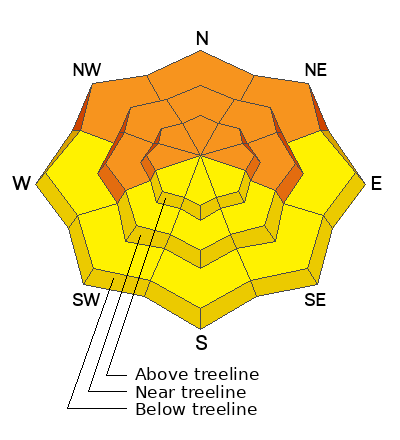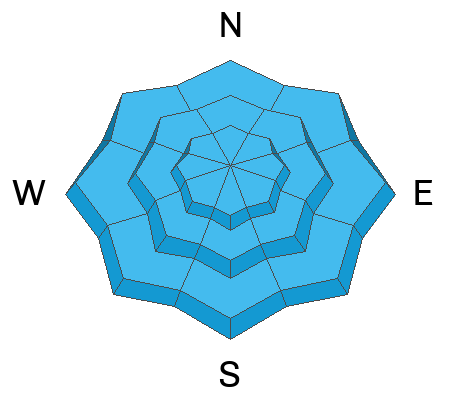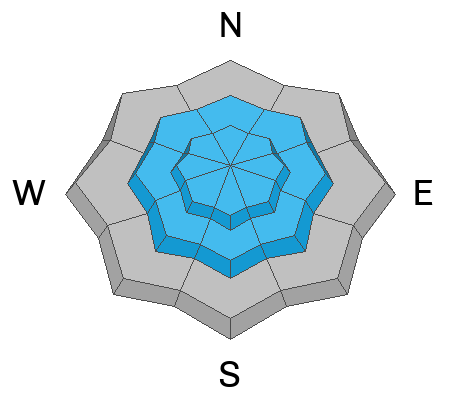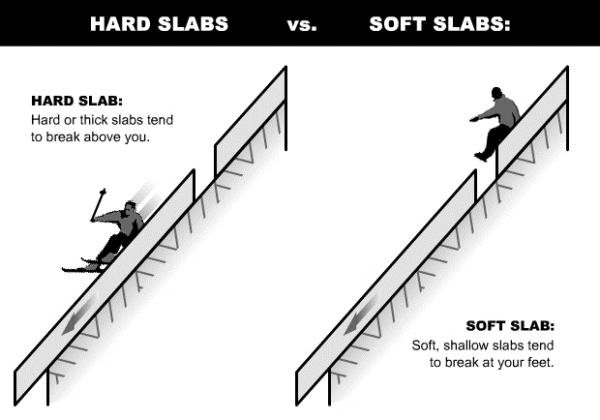Forecast for the Moab Area Mountains

Issued by Dave Garcia on
Tuesday morning, January 16, 2024
Tuesday morning, January 16, 2024
A CONSIDERABLE avalanche danger exists on all steep slopes facing W-N-E, near and above treeline, and on slopes facing NW-N-E below. Human triggered avalanches involving a buried persistent weak layer are likely in these areas.
A MODERATE avalanche danger exists on steep slopes facing SW-S-SE at all elevations, and on W and E aspects below treeline. Human triggered avalanches failing on a buried persistent weak layer are possible.
Don't allow today's beautiful weather, sunny skies, and recent new snow to lure you into a dangerous situation. These are prime conditions for an avalanche accident. Backcountry travelers need to exercise conservative decision making today.

Low
Moderate
Considerable
High
Extreme
Learn how to read the forecast here










